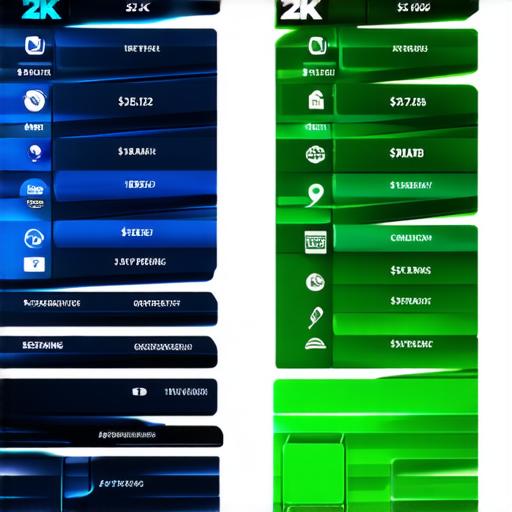Introduction:
As the world becomes increasingly immersed in technology and digital entertainment, game development has emerged as a lucrative and exciting field. However, one of the most common questions asked by aspiring game developers is “What is the salary of a game developer?” In this comprehensive guide, we will explore the various factors that affect a game developer’s salary, including their role, experience, location, and employer type.
Factors Affecting Game Developer Salary:
- Role: The role of a game developer is multi-faceted and can include tasks such as programming, design, art, and production. Each of these roles has its own unique set of skills and responsibilities, which can affect a game developer’s salary. For example, a game programmer may have a higher salary than a game designer, due to their specialized knowledge and in-demand skillset.
- Experience: The amount of experience a game developer has can also play a significant role in determining their salary. Experienced developers who have worked on successful games or projects are often in high demand and can command higher salaries. Additionally, developers with advanced degrees or certifications may be considered more valuable to employers, leading to higher salaries.
- Location: The location of the game developer can also affect their salary. In general, cities with a higher cost of living tend to have higher salaries for game developers, as they need to account for the higher cost of living in these areas. Additionally, some countries may have lower salaries for game developers due to factors such as currency exchange rates or labor laws.
- Employer Type: The type of employer can also affect a game developer’s salary. Large corporations and AAA studios tend to offer higher salaries than smaller indie studios or freelance work, as they have more resources to invest in employee compensation. However, smaller employers may offer more flexibility in terms of work hours and the opportunity for creativity, which can be appealing to some developers.
Real-Life Examples:
To illustrate these factors in action, let’s examine a few real-life examples of game developer salaries.
Game Programmer Salary:
A senior game programmer working for a large corporation in California may earn an average salary of $150,000 to $200,000 per year, depending on their experience and the complexity of the project they are working on.
Game Designer Salary:

A mid-level game designer working for an indie studio in Europe may earn an average salary of $70,000 to $90,000 per year, depending on their experience and the type of game they are working on.
Freelance Game Developer Salary:
A freelance game developer working for multiple clients around the world may earn an average salary of $100,000 to $150,000 per year, depending on their experience and the demand for their services. However, this salary can be highly variable, as freelancers must constantly market themselves and secure new work.
FAQs:
Q: What is the average salary for a game developer?
A: The average salary for a game developer varies widely depending on factors such as role, experience, location, and employer type. However, according to Glassdoor, the average salary for a game developer in the United States is approximately $103,000 per year.
Q: How do I become a game developer?
A: To become a game developer, you will typically need a combination of education or experience in programming, design, art, or production, as well as practical skills and knowledge of game development tools and software. There are many online courses and bootcamps available to help you develop the skills needed to become a successful game developer.
Q: What is the future of game development?
A: The future of game development is constantly evolving, but some trends include the increasing use of virtual reality and augmented reality technology, the growth of mobile gaming, and the rise of esports and online gaming communities. As these technologies continue to advance, we can expect to see new and innovative games that push the boundaries of what is possible in the world of interactive entertainment.
Conclusion:
In conclusion, determining the salary of a game developer requires careful consideration of several factors, including their role, experience, location, and employer type. By examining real-life examples and answering common questions, we hope to provide a comprehensive guide that will help aspiring game developers understand what they can expect in terms of compensation for their work.




